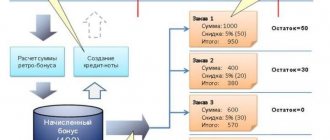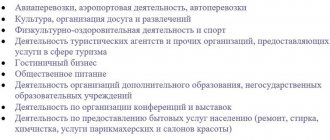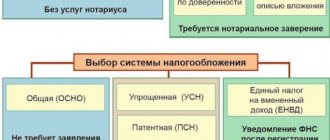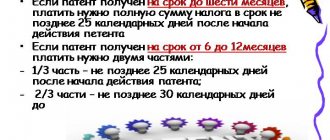Who is an honorary donor?
In accordance with the norms of the law, namely Decree of the Government of the Russian Federation No. 1228, the title “Honorary Donor” is awarded to a citizen who has donated blood free of charge at least 40 times or blood plasma at least 60 times, as well as blood components at least 25 times in combination with blood donation or plasma.
In addition to the title, the donor is awarded a badge , as well as a certificate confirming his title and entitling him to social benefits approved by Federal Law No. 125.
It should be noted that not only a citizen of the Russian Federation, but also a foreign citizen living in the territory of the Russian Federation for at least a year can become an Honorary Donor of Russia on the basis of an officially registered registration, which, together with other medical documents on blood donation, must be attached to the package of documents upon assignment honorary title.
Also, on the basis of Article 12 of Federal Law No. 125, only a person who has reached the age of majority or has received the status of legally competent person can become a donor. And considering that blood can be donated no more than 5 times a year for men and no more than 4 times for women, based on medical recommendations, which state that at least 2 months must pass between blood collections, during which the body must recover, receive the title of Honorary In any case, the donor can only be an adult citizen.
The legislative framework
Donor's journey
The legal basis for granting the status of “Honorary Donor of Russia” and receiving the corresponding preferential compensation are the following regulations:
- Federal Law No. 125 dated July 20, 2012 (as edited in 2020).
- Order of the Ministry of Health and Social Development of the Russian Federation No. 246 dated 03/31/05 (in edited form - from 04/05/12).
- Government Decree (PP) of the Russian Federation No. 1228 dated November 26, 2012.
- Federal Law “On the procedure for introducing amendments and changes”, numbered No. 313-F3 dated November 25, 2013, taking into account the additions made on December 31, 2014 and July 1, 2015.
- RF PP on approval of the “Honorary Donor” badge No. 842. Published on August 26, 1995 with additions on September 4, 2012.
- RF PP on the established procedure for awarding donors with the “Honorary Donor” badge, as well as on the payment of monetary compensation for No. 663.
- Order of the Ministry of Health on replacing the hot meals provided to blood donors with monetary compensation for No. 265 N dated April 26, 2013.
- Article No. 186 of the Labor Code of the Russian Federation.
According to the provisions in force under these laws, all citizens who meet the previously stated conditions are awarded the title “Honorary Donor” with the presentation of a special badge and the issuance of a corresponding certificate.
Please note: To obtain this status, a citizen counting on it must contact the administration of the donor point in advance with a request to be included in the list of applicants.
After preparing the list, it is sent to the regional (territorial) center with the simultaneous provision of all data on the applicants. And only after agreement with the regional authorities, this list is submitted for final approval to the relevant department of the Ministry of Health.
Procedure for obtaining the title
Of course, there are currently quite a lot of people who want to donate blood in the Russian Federation, because in accordance with Part 2 of Article 12 of Federal Law No. 125, donors are given the right to choose to donate blood for a fee or free of charge, which actually increases the number of people willing.
After all, the same students can thus receive both money and food on the day of blood sampling, and, consequently, save on current expenses, but taking blood for money does not give the right to receive an honorary title and statutory benefits, even with multiple donating blood.
For those citizens who fulfill their public duty, it is possible to receive the title “Honorary Donor” free of charge, subject to certain conditions.
In particular, in order to receive the title “Honorary Donor” the following is required :
- donate blood and its components at least 40 times;
- donate blood components at least 25 times in total with the established norm of blood sampling 40 times;
- donate blood plasma at least 60 times;
- periodically undergo a medical examination and provide certificates of examination at the frequency established by Order of the Ministry of Health No. 364;
- provide all the necessary medical examination data and guarantee its accuracy.
It should be noted that before donating blood, each donor is registered and an accounting card of the established form 405u is issued to him, in which not only the results of medical examinations are entered, but also a record of all blood draws is kept. That is, in essence, the card is the main document confirming the donor’s right to an honorary title.
Of course, the donor can himself count the blood drawn, but he cannot become the initiator of receiving an honorary title, since this responsibility is assigned to the executive authorities of health care, which periodically monitor donors and draw up reports in the established form, on the basis of Order of the Ministry of Health No. 246 .
The completed form, together with the submission, is submitted to the Ministry of Health; packages of documents for each donor are also attached to the form, the list of which is approved by the same Order No. 246 and which includes:
- photocopy of passport or any identification card;
- certificate F No. 448-05u on the number of blood draws;
- registration card.
The package of documents may also include documents confirming the title of Honorary Donor, awarded back in the USSR.
Then, within a month and a half, the Ministry analyzes and verifies the data received and issues an order to award donors an honorary title . Then the order is transmitted to the place of request, that is, to the address of the submission, and local executive bodies, after two weeks from the receipt of the ministerial order, present badges and certificates to the donors.
Also, Government Decree No. 1228 states that the certificate must be presented no later than one month from the date of receipt of the order in the district or region and in a solemn atmosphere, thus confirming the gratitude from the state for the invaluable contribution to the development of medicine of citizens who are Honorary Donors.
Annual payments in 2020
Benefits for honorary donors are stipulated in Art. 23, 24 of Law No. 125-FZ. They include cash payments that are tax-free. A benefit is calculated annually and is indexed for inflation. For 2019, the amount was 14,145.98 rubles; after the increase in 2020, 14,683.53 rubles are paid.
- How to clean and disinfect an apartment
- 14 home remedies to get rid of warts
- Mascarpone cream
To receive money, you need to contact the Ministry of Health and Social Development at your place of residence and submit the following set of documents:
- Application for benefits.
- Passport of a citizen of the Russian Federation.
- Certificate of “Honorary Donor”.
List of benefits and privileges, as well as the procedure for receiving them
In accordance with Federal Law No. 125, both the donor and the Honorary Donor are guaranteed a number of benefits provided to both working and non-working donors, on the basis of the same Labor Code of the Russian Federation or legislation on donation.
In particular, working Honorary Donors are provided with the following benefits:
- annual leave at a convenient time;
- day off after donating blood with continued earnings;
- priority right to receive vouchers for sanatorium treatment.
And regardless of whether the Honorary Donor works or not, he is guaranteed an annual payment of compensation in cash equivalent.
Compensation for food
The donor faces certain health risks. In the long term, it will not worsen due to donation, but for 2-5 days after donation the person will experience weakness and slight malaise. In order for the symptoms to disappear faster, it is necessary to restore blood components. This is done through proper nutrition.
Look at the same topic: What is a unified settlement system (USS)?
The Russian government took this feature into account and introduced hot meals at delivery points. According to the established rules, the diet includes 98 grams of protein, 100 grams of fat, 250 grams of carbohydrates. Total calorie content – 2600 Kcal. The organization where the blood is taken is also required to provide a drink: mineral water, juice, tea or coffee.
However, not all institutions have the opportunity to provide hot meals. The reasons may be different:
- blood is donated at a mobile point or other free premises;
- there is no canteen in the medical institution;
- The dining room is temporarily closed.
If one of the above factors is true, donors are provided with food reimbursement. It is 5% of the subsistence level in the region. How much do blood donors get paid 2020 in Moscow? Residents of the capital are entitled to an increased payment: 5% of the monthly minimum plus a 20% bonus. Total 1128 rubles.
For reference! If an institution has the opportunity to provide hot meals, it will not be possible to exchange it for monetary compensation at your own request.
You should apply for food compensation directly to the institution where you donate blood, immediately after donating. The donor must fill out a special application.
Cash rewards and compensation
In particular, on the basis of Article 24 of Federal Law No. 125, the Honorary Donor is guaranteed monetary compensation annually in the amount established by regulations, namely Part 6 of Article 8 of Federal Law No. 384.
In 2020, payments to Honorary Donors were indexed by 4.3%. Thus, the size of the annual cash payment to donors in 2019 is 14,145.98 rubles.
It should be noted that the established compensation is indexed and, accordingly, Honorary Donors can count on decent remuneration for fulfilling public duty, taking into account the economic situation in the country. Also, in accordance with the norms of the law, when paying for an additional day off for donors when donating blood, the taxation procedure is not applied in general, but in accordance with Article 165 of the Labor Code of the Russian Federation, namely as for the performance of public duties.
Weekend
The honorary donor is guaranteed, on the basis of labor legislation, the right to additional days off established by Article 186 of the Labor Code of the Russian Federation. In particular, the specified regulatory act states that on the day of undergoing a medical examination, which, by the way, is carried out not only the day before blood sampling, but also according to the schedule established by Order of the Ministry of Health No. 364, the donor is released from work, while the earnings for the day of release for it is not saved, but there is no need to return to work after the examination, even if the medical procedures only took a few hours.
But the day of blood donation is subject to compensation , in particular, the donor retains payment for the day, but in an average amount, as well as the right to receive an additional day off (paid, by the way), which can be used the next day after blood donation or transferred and added to vacation.
And given that the blood sampling process itself lasts only a few hours, while the work shift averages 8 hours, the donor, in agreement with the management, can go to work, but provided that his daily work is not associated with harmful conditions established according to workplace certification.
One more nuance should be noted. The donor is not obliged to notify in writing or ask permission from management to visit a medical institution to donate blood, but he must confirm his absence with a certificate F401/u for undergoing an examination and a certificate F 402/u for drawing blood. These certificates must not only be registered, but also entered into a special journal, but the day of going to work after donating blood must also be recorded by an application from the employee in order to be paid in the amount equivalent to the performance of duties, and not on average.
Employer's liability for non-payment
The most common violation of donors' rights is when their employer accuses them of absenteeism. So, employees belonging to this category have every right not to come to their workplace, both directly on the day of the blood donation procedure, and on the subsequent day intended for rest and recovery. At the same time, the head of the enterprise does not have the right to give them absenteeism, much less fire them. This behavior does not constitute unauthorized taking of leave or absenteeism, since failure to provide an employee with rest after donating blood is a violation of the law.
To prevent a conflict situation with management, the donor employee can write a statement in any form or verbally warn the manager and then provide certificate No. 402/u.
The director of an enterprise who violates the rights of donors bears administrative liability under Article 5.27 of the Administrative Code.
Other social benefits
Of course, an honorary donor is rewarded not only with material benefits and labor benefits; on the basis of Article 12 of Federal Law No. 125, he has the right :
- to receive free medical care in the event of complications occurring after blood sampling, which includes not only the treatment process itself, but also free medications;
- priority right to receive sanatorium and resort vouchers, not only at the place of work, but also at study, for example, if we are talking about a graduate student who donated blood throughout his studies and received the title of Honorary Donor.
Validity period of certificates
Both types of donor certificates have the same validity period - 1 year.
But there are some peculiarities. For example, if during the validity period of the certificate the donor changed his place of work and presented it to the new employer, the latter does not have the obligation to provide a day off. According to the letter of Rostrud dated July 8, 2011 No. 2029-6-1, the validity period of the documents is until the termination of the employment relationship with the employer.
It is also possible that at the time of receiving the certificate the donor was unemployed, but over the next 12 months got a job. In this case, it is considered that at the time of receiving the medical document the person was not registered in the state, and therefore has no right to benefits (according to Article 186 of the Labor Code, preferences apply only to employed people).











